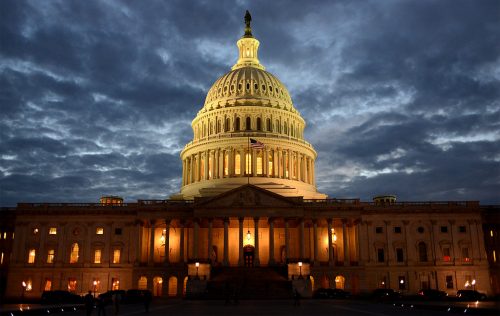

By Isabelle Verduzco
UNITED STATES — This Tuesday, the stopgap funding bill meant to avert a government shutdown on Saturday passed with a 336-95 vote in the House. This was not done without difficulty for the new Speaker Mike Johnson, however. As a self-proclaimed archconservative Republican, he faced extensive disapproval from other Republicans – especially because the previous Speaker of the House, John McCarthy, was ousted for pushing a similar bill.
“I will not support a status quo that fails to acknowledge fiscal irresponsibility, and changes absolutely nothing while emboldening a do-nothing Senate and a fiscally illiterate President.” said Scott Perry, Representative of Pennsylvania on X.
Other Republicans such as Chip Roy, a representative of Texas, expressed a more sympathetic view. “Mike’s a friend. You know, I wanted to give a little time to get all this going. I get it. It’s difficult.”
“But, you know, for the same reasons that I opposed the CR on 1 October, I oppose the CR that Speaker Johnson is putting forward because it continues to perpetuate the very system my constituents sent me here to oppose.”
Furthermore, some Republicans expressed their distaste for Johnson’s decision to rely on Democrats to pass the bill. Johnson, however, proved adamant despite the criticism, believing it to be the best course of action.
“When you have a small majority, it requires some things . . . to be bipartisan.”
Luckily for Johnson, there has also been no indication that he will lose his position in a similar way to McCarthy.
The short-term bill, a continuing resolution (CR), extends funding in an unusual way where some agencies receive extended funding until mid-January and others until early February. While unsupported by most Republicans, it won the appeal of Democrats even though it didn’t meet every demand. For example, there is no aid being sent to Ukraine.
All that is left is approval in the Senate before it can be sent off to President Joe Biden. If the bill is vetoed, the shutdown on Saturday would suspend any services deemed unnecessary such as WIC (Special Supplemental Nutrition Program for Women, Infants, and Children) and SNAP (Supplemental Nutrition Assistance Program) as well as prevent about 4 million federal employees from receiving pay. This would be especially problematic if it endures for a lengthy period of time. Other programs such as Medicare and Social security, though, would continue to be distributed since they are considered mandatory.
Either way, Johnson expressed his satisfaction upon the bill’s passing.
“We’re pleased. We’re pleased with the outcome.”